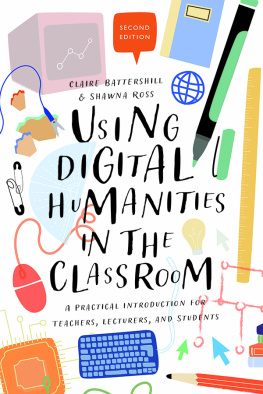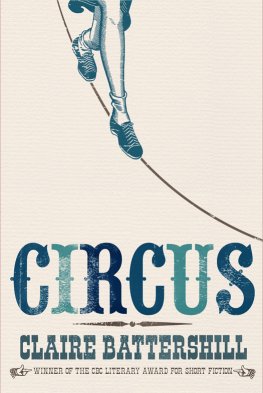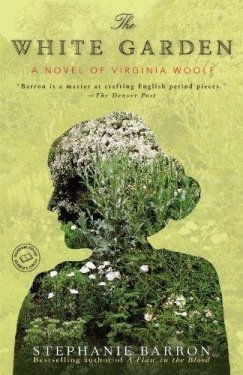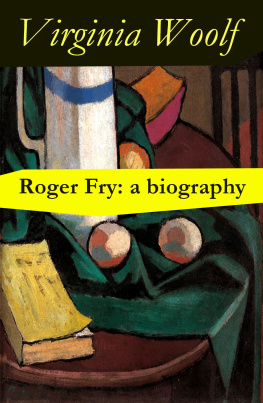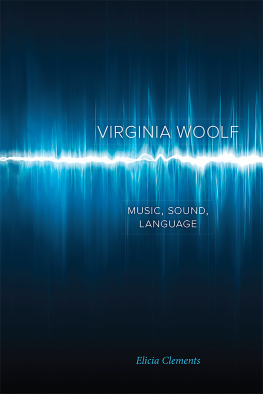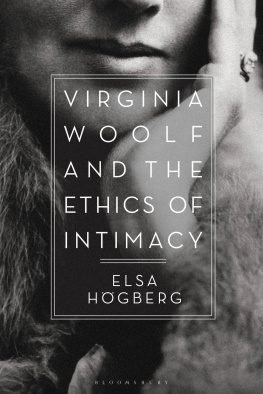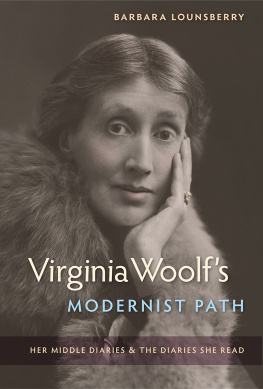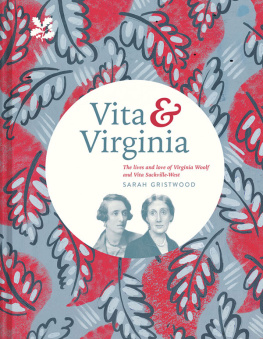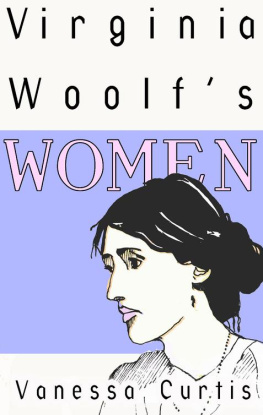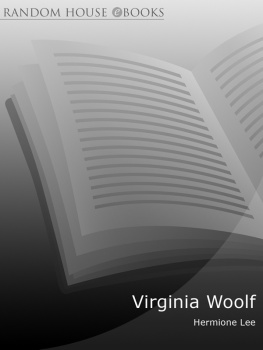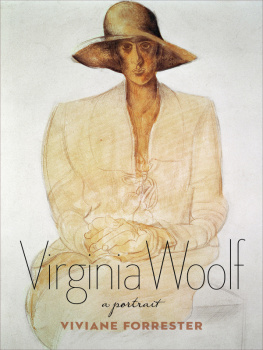Modernist Lives
Historicizing Modernism
Series Editors
Matthew Feldman, Professor of Contemporary History, Teesside University, UK; and Erik Tonning, Professor of British Literature and Culture, University of Bergen, Norway.
Assistant Editor: David Tucker, Associate Lecturer, Goldsmiths College, University of London, UK
Editorial Board
Professor Chris Ackerley, Department of English, University of Otago, New Zealand; Professor Ron Bush, St. Johns College, University of Oxford, UK; Dr Finn Fordham, Department of English, Royal Holloway, UK; Professor Steven Matthews, Department of English, University of Reading, UK; Dr Mark Nixon, Department of English, University of Reading, UK; Professor Shane Weller, Reader in Comparative Literature, University of Kent, UK; and Professor Janet Wilson, University of Northampton, UK.
Historicizing Modernism challenges traditional literary interpretations by taking an empirical approach to modernist writing: a direct response to new documentary sources made available over the last decade.
Informed by archival research, and working beyond the usual European/American avant-garde 190045 parameters, this series reassesses established readings of modernist writers by developing fresh views of intellectual contexts and working methods.
Series Titles
Arun Kolatkar and Literary Modernism in India, Laetitia Zecchini
British Literature and Classical Music, David Deutsch
Broadcasting in the Modernist Era, Matthew Feldman, Henry Mead and Erik Tonning
Charles Henri Ford, Alexander Howard
Ezra Pounds Adams Cantos, David Ten Eyck
Ezra Pounds Eriugena, Mark Byron
Great War Modernisms and The New Age Magazine, Paul Jackson
James Joyce and Absolute Music, Michelle Witen
James Joyce and Catholicism, Chrissie van Mierlo
John Kasper and Ezra Pound, Alec Marsh
Katherine Mansfield and Literary Modernism, edited by Janet Wilson, Gerri Kimber and Susan Reid
Late Modernism and The English Intelligencer, Alex Latter
The Life and Work of Thomas MacGreevy, Susan Schreibman
Literary Impressionism, Rebecca Bowler
Modern Manuscripts, Dirk Van Hulle
Modernism at the Microphone, Melissa Dinsman
Reading Mina Loys Autobiographies, Sandeep Parmar
Reframing Yeats, Charles Ivan Armstrong
Samuel Beckett and Arnold Geulincx, David Tucker
Samuel Beckett and The Bible, Iain Bailey
Samuel Beckett and Cinema, Anthony Paraskeva
Samuel Becketts More Pricks Than Kicks, John Pilling
Samuel Becketts German Diaries 19361937, Mark Nixon
T. E. Hulme and the Ideological Politics of Early Modernism, Henry Mead
Virginia Woolfs Late Cultural Criticism, Alice Wood
Upcoming Titles
Chicago and the Making of American Modernism, Michelle E. Moore
Politics and 1930s Literature, Natasha Periyan
Samuel Beckett and Science, Chris Ackerley
Modernist Lives
Biography and Autobiography at Leonard and Virginia Woolfs Hogarth Press
Claire Battershill

Contents
Figures
Table
This book series is devoted to the analysis of late nineteenth- to twentieth- century literary modernism within its historical contexts. Historicizing Modernism therefore stresses empirical accuracy and the value of primary sources (such as letters, diaries, notes, drafts, marginalia or other archival materials) in developing monographs and edited collections on modernist literature. This may take a number of forms, such as manuscript study and genetic criticism, documenting interrelated historical contexts and ideas, and exploring biographical information. To date, no book series has fully laid claim to this interdisciplinary, source-based territory for modern literature. While the series addresses itself to a range of key authors, it also highlights the importance of non-canonical writers with a view to establishing broader intellectual genealogies of modernism. Furthermore, while the series is weighted towards the English-speaking world, studies of non-Anglophone modernists whose writings are open to fresh historical exploration are also included.
A key aim of the series is to reach beyond the familiar rhetoric of intellectual and artistic autonomy employed by many modernists and their critical commentators. Such rhetorical moves can and should themselves be historically situated and reintegrated into the complex continuum of individual literary practices. It is our intent that the series emphasis upon the contested self-definitions of modernist writers, thinkers and critics may, in turn, prompt various reconsiderations of the boundaries delimiting the concept modernism itself. Indeed, the concept of historicizing is itself debated across its volumes, and the series by no means discourages more theoretically informed approaches. On the contrary, the editors hope that the historical specificity encouraged by Historicizing Modernism may inspire a range of fundamental critiques along the way.
Matthew Feldman
Erik Tonning
This book is, among other things, a love letter to libraries and archives. It is the record of time spent in the company of historical letters, hand-made books, paper samples, sketches, drawings, first editions, and the people who preserve and care for them. I would therefore like to thank the staff at the E. J. Pratt Library in Toronto (especially Roma Kail, Helena Kozar, Lisa Sherlock and Carmen Socknat) and I would like to honour the memory of Mary Rowell Jackman who donated her private collection and began what has become one of the most extensive gatherings of Woolf-related materials in the world. I would also like to thank the current and past staff at the University of Reading Archive of Publishing and Printing (particularly Nancy Jean Fulford and Guy Baxer); and the current and past staff at the Penguin Random House Library and Archive in Rushden (particularly Jean Rose, Charlotte Perkins and Sarah McMahon) who facilitated access to the archive through the copyright holders estates. Penguin Random House kindly gave me permission to undertake this research, which began as my PhD dissertation. Many thanks to the reading room staff and curators at the British Library, the Bodleian Library, the Cambridge University Library, the Senate House Library, the Harry Ransom Center, the Simon Fraser University Library and the Thomas Fisher Rare Book Library. Permission to quote from unpublished archival materials and to use quotations by Leonard and Virginia Woolf as chapter epigraphs has been generously granted by the Society of Authors as the representatives for the estates of Leonard and Virginia Woolf. The epigraph from Vita Sackville-Wests Joan of Arc is reproduced with permission of Curtis Brown Group Ltd, London, on behalf of the Beneficiaries of the Estate of Vita Sackville-West Copyright Vita Sackville-West 1937. Financial support from the Social Sciences and Humanities Research Council of Canada made this project possible and an Alfred and Blanche K. Knopf fellowship allowed me to travel to the Harry Ransom Center.
In a book on publishing, it seems particularly fitting to have had such a smooth and pleasant journey from manuscript to book. I am grateful for the hard work of everyone at Bloomsbury. Particular thanks go to the literary editor, David Avital, and the series editors, Matthew Feldman and Erik Tonning. I would also like to thank the anonymous reviewers of the manuscript for their tremendously helpful reports.


